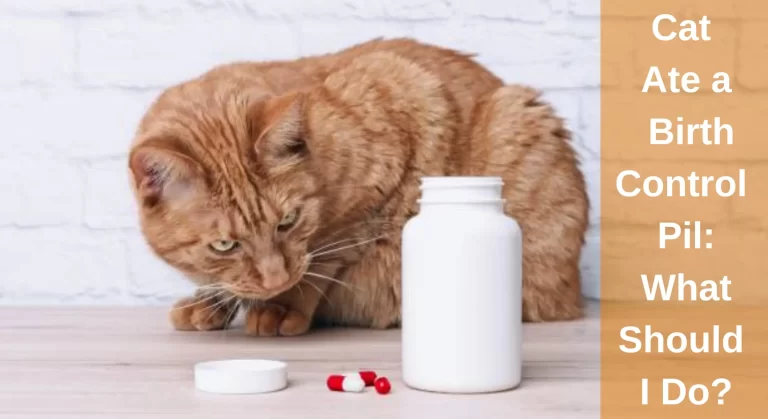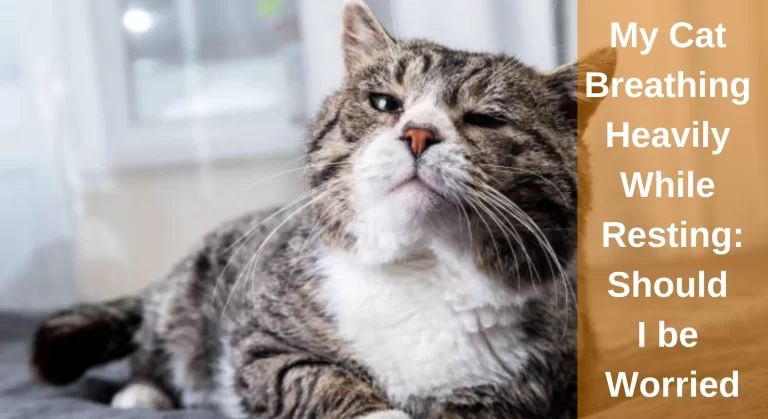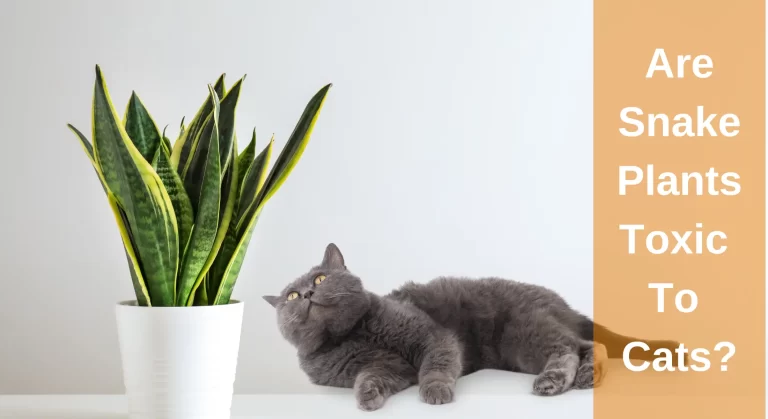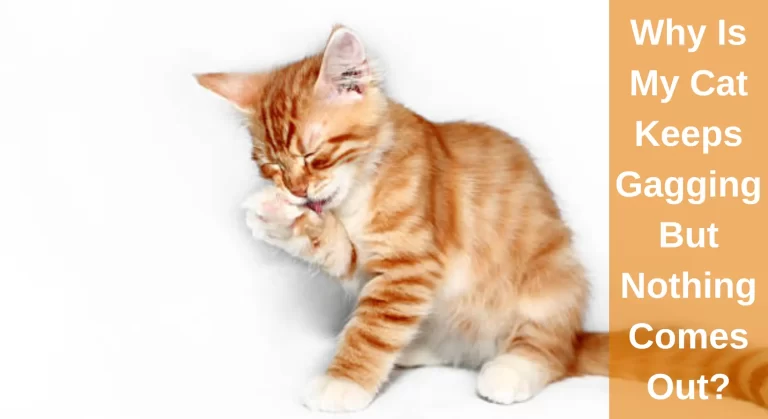What Smells Do Cats Hate? Cat’s Sense of Smell Explained
Cats are known for their fastidious nature, spending hours grooming themselves to perfection. But these finicky felines can be just as discerning when it comes to scents. Cats are known for their acute sense of smell, which is far more developed than that of humans.
The sense of smell in cats is highly developed, and some scents may be unpleasant to them. Some smells that cats may dislike include citrus scents, lavender, mint, vinegar, and strong cleaning products. However, each cat is unique and may have different preferences regarding scents.
In this article, we’ll explore the scents that are most likely to make your feline friend turn up their nose.
Why Do Cats Dislike Certain Smells?
Cats rely heavily on their sense of smell to navigate the world around them. While humans have roughly 5 million olfactory receptors, cats have a whopping 80 million.
Some scents may be overwhelming or confusing to cats, causing them to avoid areas with those smells. Additionally, some scents may be associated with negative experiences for cats, such as the smell of certain cleaning products used during litter box cleaning.
This heightened sense of smell allows cats to detect scents that are imperceptible to humans, but it also means that they can be more sensitive to certain odors.
Cats have a unique vomeronasal organ, also known as Jacobson’s, located on the roof of their mouth. This organ allows cats to detect pheromones, which are chemical signals that animals use to communicate with each other.
When cats encounter a scent, they don’t like, and they may exhibit behaviors such as sneezing, coughing, or even vomiting to rid themselves of the offensive odor.
What Smells Do Cats Hate? Smells That Cats Absolutely Dislike
Cats have a very keen sense of smell and are extremely sensitive to certain odors. As such, they find specific smells unpleasant and may even hate them.
However, a cat owner can use this attribute in his favour if you want to keep cats away. Most fruits and vegetables aromas are among those that felines detest. Some of these smells include:

1. Semll of Citrus
Cats dislike citrus smells like those found in oranges, lemons, and grapefruits. These smells are thought to be overwhelming and unpleasant to cats.
These fruits contain a chemical compound called limonene, which has a strong scent that cats find repulsive. Therefore, using citrus-scented air fresheners or cleaners in areas where your cat frequents may discourage them from visiting those places.
However, lemon is highly powerful and unpleasant to feline when taken in aetheroleum (Lavender Oil) condition. A lime spray may be prepared by diluting lemon in water and sprinkling it on the locations where you decided to keep cats away.
2. Lavender
Although many humans find lavender to be a soothing and calming scent, cats do not share this sentiment. In fact, the scent of lavender is known to be irritating to cats and can cause them to develop respiratory issues, such as coughing and sneezing.
The strong fragrance of lavender can also cause cats to become stressed and anxious. You can use lavender-scented products to keep your cat away from certain areas.
3. Peppermint
Peppermint comes in a wide variety, all of which cats despise. Moreover, it is a biennial plant that grows on its season after season.
Cats do not like the scent of peppermint. Its strong smell can be overwhelming to them, leading to discomfort or even nausea.
It is also important to note that peppermint oil can cause serious health problems in cats and should never be used around them.
If you’re having trouble keeping your cat out of a specific area, try placing some peppermint oil on a cotton ball and leaving it in the area.
4. Cinnamon
While cinnamon is a popular scent for humans, it is not as pleasant for cats. Cinnamon contains a compound called cinnamaldehyde, which has a strong scent that cats find unpleasant.
Its strong smell can cause cats to become agitated or even irritated, leading to behavioral issues such as scratching and biting.
Cats are sensitive to strong spices like cinnamon, cayenne pepper, and mustard. These spices have a pungent smell that can irritate a cat’s nose and cause discomfort. You can use these spices in small amounts to deter your cat from certain areas.
Check Out: Can Cats Taste Spicy Food?
5. Eucalyptus
Eucalyptus is another scent that cats hate. Due to its strong odor, cats avoid areas where it is present due to its overpowering smell. Cats are also susceptible to the toxic properties of eucalyptus oil and should never be used around them.
If you’re having trouble keeping your cat away from certain areas, try using a eucalyptus-scented air freshener or candle.
6. Mint
Mint is another scent that cats dislike. Its strong smell can be overwhelming to cats’ sensitive noses, and they will likely avoid it at all costs.
The strong fragrance of mint can lead to discomfort or even nausea. Furthermore, mint oil should never be used near cats due to its toxic properties.
Mint is famous for spreading quickly and avidly; if it is ever sown since you’re worried about it spreading over your lawn, sow mint in planters to limit its growth.
You can use mint-scented sprays or plants like catnip to deter cats from certain areas.
Likewise, remember that this herb is harmful to pets, so make sure your cat isn’t highly manifested to the herb.
7. Cats Are Easily Offended By Vinegar
Vinegar has a strong odor that cats find repulsive. You can use a mixture of vinegar and water to clean surfaces or areas where your cat is not allowed.
Accordingly, cats are notably offended by refined white vinegar. Thus strong odour of vinegar intensifies a cat’s perceptions and obscures any possible food in the house. As a result, whenever the aroma of the vinegar is strong, cats avoid it.
Consequently, cats would never be deterred from sweet cider. As it is sugary in taste and could lure cats to the precise spot you’re attempting to keep them away from.
8. Garlic
While garlic is a favorite ingredient for many people, cats hate the smell of it. Garlic has a strong scent that cats find unpleasant.
If you’re cooking with garlic and you want to keep your cat away from the kitchen, try closing the door or using a fan to keep the scent contained.
9. Onions
Onions are another ingredient that cats hate the smell of. Onions contain a chemical compound called n-propyl disulfide, which has a strong scent that cats find unpleasant.
If you’re cooking with onions and you want to keep your cat away from the kitchen, try closing the door or using a fan to keep the scent contained.
10. Rosemary
Rosemary is another herb that is available as an essential oil or as a plant. The herb can serve double duty as a garden plant as well as a culinary herb.
You can keep cats away by planting rosemary in your kitchen garden, and it is also a beautiful accent to your kitchen decor.
It is still not a good idea to use too many essential oils near your cat, as anything in a high concentration will likely have a negative effect on her.
11. The Smell Of Thyme
Due to its potent scent, thyme is another culinary herb that cats dislike. It will be nice to plant thyme and rosemary together in your garden to repel cats and have many useful herbs that can be used to make cooking easier and freshen your home.
Thyme has quite a strong scent, so you can use it to deter cats by placing its leaves in satchels around locations you want your cat to stay away from.
For cats, thyme’s scent is too overwhelming, and cats cannot identify it as a source of food.
Certain common herbs, such as rosemary, rue, and thyme, are considered offensive by cats. Cats typically don’t react to rosemary and thyme, but rue can (like humans) cause a negative reaction.
12. Pine
Cats, however, avoid pines because they find them too strong! The use of pine outside in other ways can also help keep cats away.
Put a bunch pile of pine needles in the places where cats are most likely to enter your yard. Strong smells will turn cats off, but there will also be an unpleasant texture, which will discourage them from walking in those areas.
If your cat reacts negatively to pine-based natural cat litter, you should know that some are suitable. Clumping litter that is unscented is generally preferred by cats for doing their business.
13. Ground Coffee
Coffee doesn’t smell as appealing to your cat as it does to you, which is good. Cats can suffer toxicity poisoning from caffeine when consumed as brewed coffee, coffee grounds, or coffee beans.
If you want to keep cats out of your garden, use coffee grounds, but remember to put them in a container so that cats don’t accidentally consume them.
14. Pepper, Mustard, and Curry
The strong flavors of pepper and curry are not enjoyable for cats, which is why cayenne or pepper flakes are used as cat deterrents. However, peppers and mustard contain capsaicin, which can be potentially toxic to cats.
While it may prevent your cat from wandering into an off-limits area, an undeterred cat could become quite ill. With this in mind, it is better to choose a safer option.
15. Cleaning Chemicals
If you’re looking to have your first cat, you might be tempted to give your home an even deeper cleaning now that there’s a feline around. It is important to keep in mind that many cats will find these scents too strong or downright offensive.
16. Soaps and Perfumes
Although cats aren’t opposed to having their hair done on principle, they are sensitive to the scents of grooming products.
Watch out for perfumes, lotions, and soaps with strong scent notes. Notes that are irritating to a cat can result in them acting out and ignoring you, or worse!
Are Some Cats More Sensitive to Smells Than Others?
Yes, some cats are more sensitive to smells than others. Just like humans, cats have different levels of sensitivity to different smells.
Some cats may be more sensitive to certain scents due to their genetics, while others may have developed a heightened sensitivity due to health issues or environmental factors.

For example, cats with respiratory issues like asthma may be more sensitive to strong scents and irritants. Similarly, older cats or cats with certain medical conditions may have a reduced sense of smell, making them less sensitive to certain scents.
It’s important to note that while cats may have varying levels of sensitivity to smells, certain scents are universally disliked by felines. Citrus, mint, and lavender, for example, are smells that most cats find unpleasant regardless of their individual sensitivities.
What Happens When Cats Encounter Smells They Don’t Like?
When cats encounter smells they don’t like, they may exhibit a range of behaviors as a way to avoid or get away from the offensive scent. Some common behaviors that cats may exhibit include:
- Sneezing: When cats encounter a strong or irritating smell, they may sneeze as a way to rid themselves of the offending odor.
- Coughing: Cats may cough when a smell irritates their respiratory system.
- Vomiting: In some cases, cats may even vomit as a way to expel a smell that they find particularly repugnant.
- Hiding: If a cat encounters a smell they don’t like in its environment, it may try to hide or avoid that area altogether.
It’s important to note that while some of these behaviors may be concerning, they are typically a normal response to encountering an unpleasant smell.
However, if your cat exhibits persistent or severe symptoms such as vomiting or coughing, it’s important to consult with a veterinarian to rule out any underlying health issues.
Using Smells to Your Advantage
Knowing what smells cats hate can be helpful in deterring them from certain areas of your home. However, it’s important to note that cats may have different preferences when it comes to smells. It’s always best to test a scent before using it to deter your cat.
It’s also important to keep in mind that cats rely heavily on their sense of smell. Using too much of a scent, your cat dislikes can cause stress and anxiety. As such, it’s best to use these scents sparingly and only when necessary.
Natural Ways To Keep Cats Away from off-limits Areas
Besides employing fragrances to deter cats, you may have multiple alternatives depending on conditions. Despite utilizing odors that cats dislike, there will be a few additional possibilities to explore.

- Firstly, pheromone sprays successfully make cats happy, which improves undesired cat activities frequently triggered by hostility in cats, particularly if you have one or more cats.
- Secondly, Suppose you are a homeowner trying to make your property unappealing to feral cats by providing an unappealing atmosphere. In that case, cats will not return to a location if they are constantly confronted with distasteful items. The most successful strategy is to use a mix of cat-deterring tactics.
- Additionally, there is no need to leave water out and have settings where water drains and stray cats can lick. Cultivating vegetation and plants that are repulsive to cats, whether by scent or appearance, helps repel animals away and absorb water in the surrounding grass.
- Furthermore, planting freshwater faucets in the yard might also act as a warning for cats.
- Similarly, ensure that garbage is kept securely. This seems to be effective for deterring pests at a distance. However, like some other wild animals, kitties will scavenge your garbage for food.
Can Cats Develop a Tolerance to Certain Scents?
Cats can become desensitized to certain scents over time, especially if exposed to them frequently. This means that a scent that initially repels your cat may become less effective over time as your cat becomes accustomed to it.
Frequently Asked Questions
What spices do cats hate?
Many cats find peppers, curry, and cinnamon to be unpleasant or overwhelming due to their strong aromas and flavors. It is not known whether all cats dislike all spices; however, some cats may be sensitive to their strong, pungent aromas. Cats may also dislike or find overwhelming the fragrances of citrus and menthol.
What scents do cats hate the most?
Cats are generally sensitive to smells, but some scents they hate will surprise you. Cats abhor citrus and don’t like the smell of herbs, including rosemary and thyme, regardless of how much you love the scent. As well as lavender and eucalyptus, bananas and mustard are big no-nos.
What is a good homemade cat repellent?
The strong scent of citrus drives cats away, so You can try a mixture of ten drops of capsicum and lemon essential oil, one quart of water, and twenty drops of peppermint essential oil. Shake and blend well, then spray onto furniture, carpets, upholstery, and plants.
What smell do cats like? Smells that attract cats
If you want cat-friendly air fresheners, certain scents are particularly appealing to cats. Generally, cats love catnip, olives, non-citrus fruits, and plants like honeysuckle.
The olive tree has a stimulant influence that alters the attitude of cats. This seems to be linked to oligosaccharides, a bioactive constituent in the olive tree. When a cat recognizes such a scent, they tend to show a more energetic attitude, comparable to just that displayed during reproductive behaviour.
Honeysuckle has a significant comforting and relaxing influence on the cat’s body. Consequently, the aroma emitted by honeysuckle is one of the aromas that soothe cats.
Valerian root is attractive to many cats, as it induces the same euphoria as catnip.
Final Thoughts!
In conclusion, cats are sensitive to certain smells, and knowing what smells they dislike can be helpful in deterring them from certain areas of your home. While keeping your home clean and odor-free is important, it’s also important to remember that cats have different preferences regarding smells. Use these scents sparingly and only when necessary to avoid causing your cat unnecessary stress and anxiety.
We hope this article has provided you with valuable information on what smells cats hate and how you can use this knowledge to your advantage. You can keep your home smelling fresh and your feline friend happy with the right approach.
Who is Isabella?
My name is Isabella, and I am a dedicated and knowledgeable cat enthusiast. With years of experience caring for cats and a deep love for felines, I made a mission to help other cat lovers navigate the challenges of cat ownership.






